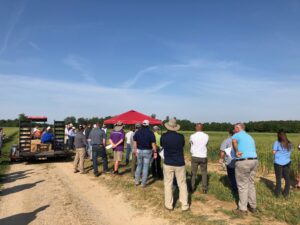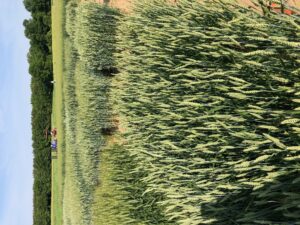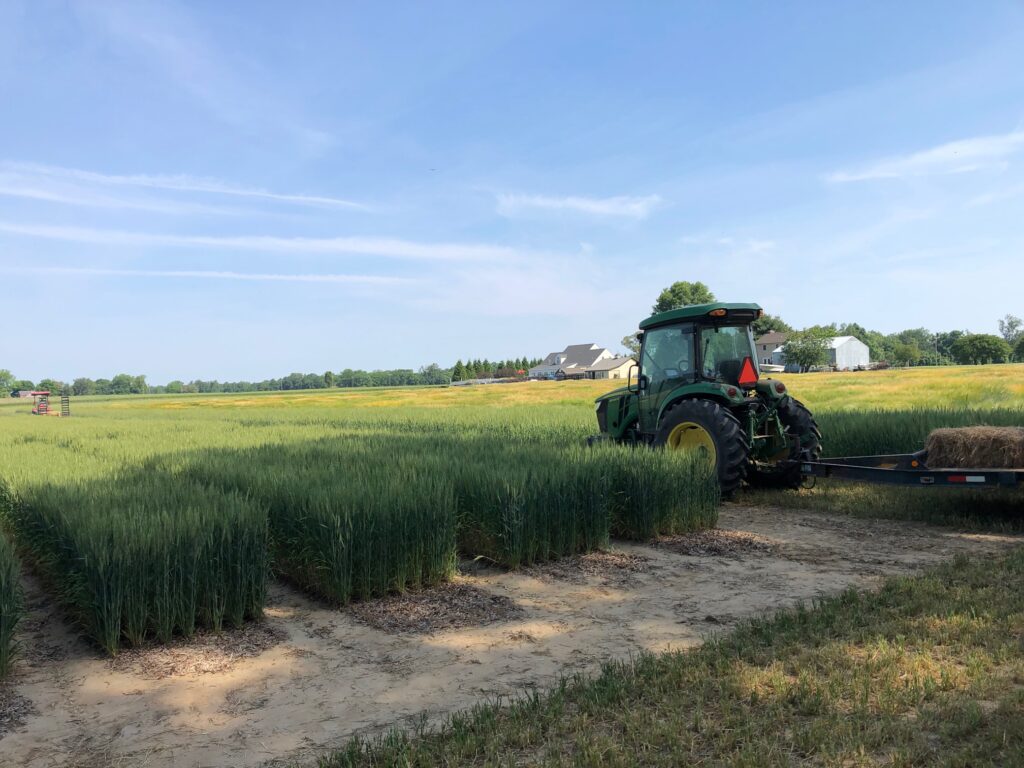Hosted by the Virginia Grain Producers Association and Virginia Tech at the Eastern Virginia Agricultural Research and Extension Center in Warsaw, the 2021 Virginia Grains Field Day presented a wide array of small grains related research. Topics included soil fertility, ariel image mapping, variety development, and the challenges and opportunities of climate change.

Building soil health was a focus of Dr. Wade Thomason’s presentation on climate trends, where he spoke to Virginia’s increase in annual temperature and average annual rainfall since 1980. While the annual average increase in temperature is rather large, a closer look at the data spotlights a lesser change in May when many farmers are getting crops into the ground. Similarly, the increases in Virginia’s gain of nearly 6 inches in average rainfall since 1980 have principally occurred in June, October, November, and December. Notably March has seen a decrease in rain. Such change in temperature and rainfall thus significantly impacts small grains along with newly planted crops in the month of May.

With such extreme changes – dry almost drought conditions as we are seeing now – as well as months where Virginia receives inches not tenths of rain – biosolids may prove beneficial to building the soil, adding nutrients, and maintaining moisture. This is one factor for farmers to consider along with delayed planting dates to increase yield and benefit from these new weather patterns.
Click HERE to view a short video about the field day. Dr. Wade Thomason’s presentation, Climate Trends Affecting Small Grains, as well as the rest of the 2021 Virginia Small Grains Field Day program will be published to the Eastern Virginia AREC You Tube video channel in the coming days.
